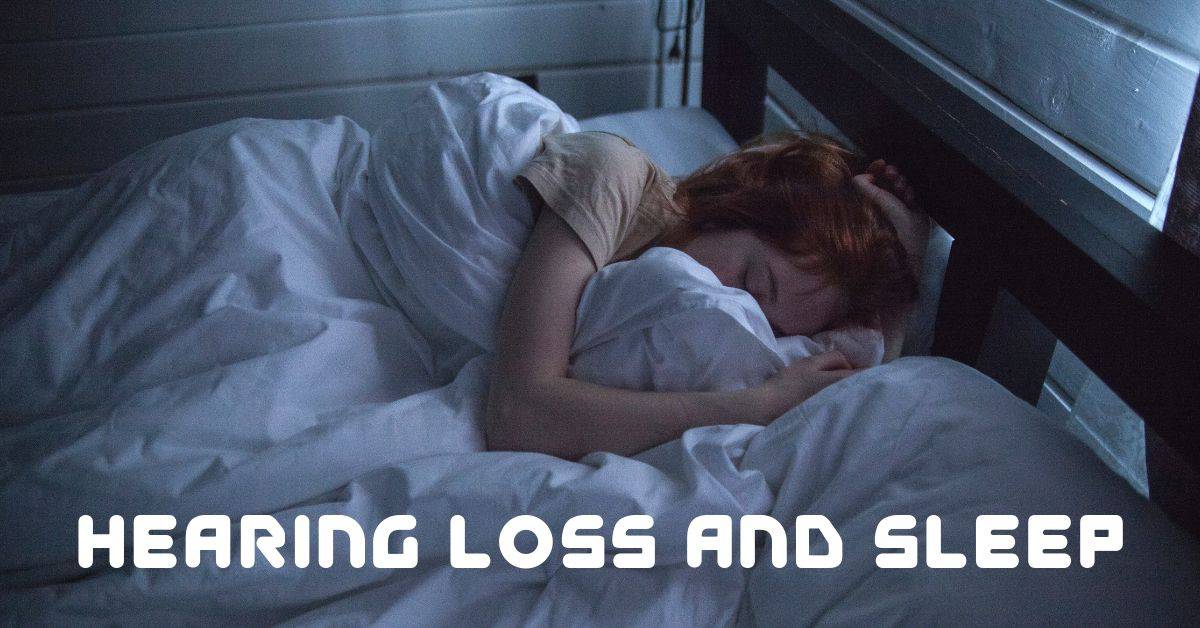
When you think about the relationship between hearing and sleep, you may recall a time when you heard too much to sleep. A noisy environment can be quite distracting when you are trying to let your mind go to rest, and we have all experienced interruptions to the sleeping process due to sound at one time or another. Indeed, unwanted sounds can get in the way of restful, deep sleep, but we might be curious, on the other hand, about the relationship between sleep and hearing loss. Does hearing loss actually make it easier to sleep, due to the lack of distracting sounds? Does the stress of hearing loss make it more difficult? What are the differences between hearing loss that happens later in life, congenital deafness, and tinnitus?
The answers to these questions remain up in the air. Research on the relationship between sleep and hearing loss has discovered that sleep is a quite mysterious human behavior. Not only is it necessary to get enough time sleeping to wake up rested, but also one must reach a state of deep sleep for a sustained time. Sleep researchers claim that delta sleep, which is a deep, dreamless sleep, is necessary for memory formation, mood regulation, and to wake up with the feeling of restfulness. With these important features of the brain in mind, we might be even more curious about the relationship between hearing loss and delta sleep as we are with the total amount of uninterrupted sleep.
How Hearing Loss and Deafness May Affect Sleep
Let’s take total hearing loss, including congenital deafness, for starters. Those who are born with total hearing loss have different sleep patterns than those who develop hearing loss later in life. Overall, those with congenital deafness tend to have less restful sleep, including a higher incidence of insomnia. Some researchers believe that lack of restful sleep might have to do with another correlate of congenital deafness: higher rates of depression. Depression can cause an array of sleep disorders, and this condition might be found as an intermediate factor between deafness and insomnia.
Like those with total deafness from birth, those with hearing loss that develops later in life tend to have higher rates of depression, as well. However, the relationship with sleep disorders is unclear. Some studies show that those who develop hearing loss later in life actually have better sleep. Researchers hypothesize that this finding might have to do with the absence of disturbing sounds that can sometimes prevent those with full hearing ability from being able to get a full night’s sleep. Without distracting sounds getting in the way, these older adults might be able to sleep through the night.
However, we must keep in mind the essential function of hearing to wake us up from sleep. When an interruption to sleep comes along, our ears are usually the first line of defense to rouse the resting mind. If there is a danger, our ears can wake us from sleep, so hearing ability is crucial to basic safety. Imagine that an emergency is taking place in one’s residence, such as a fire. Although the smell of smoke may wake a sleeping person in the building, the sirens of emergency vehicles or smoke alarms can also be crucial to wake a person up and to escape to safety. Though people with hearing loss may enjoy the restful sleep they can experience without annoying or disturbing noises, some sounds are essential to our safety.
Hearing Aids Could Benefit Sleep
Oddly enough, wearing hearing aids can actually help develop sound sleep. Those with tinnitus and hearing loss reported better sleep patterns after beginning to wear hearing aids. Of course, most hearing aids are not designed to be worn at night, and the ears need a chance to rest unassisted during sleep. Some people seek out special hearing assistive technology to help them hear alarms or children when they wake up, but the majority of hearing aids are designed to be removed at night. Those who properly wear their hearing aids during the day and take them out at night report better sleep.
Pacific Northwest Audiology
If you’ve struggled with hearing in your daily life, we can help. At Pacific Northwest Audiology we provide comprehensive hearing health services, from testing to hearing aid fittings. Contact us to learn more about how hearing aids can bring benefits to your life.
